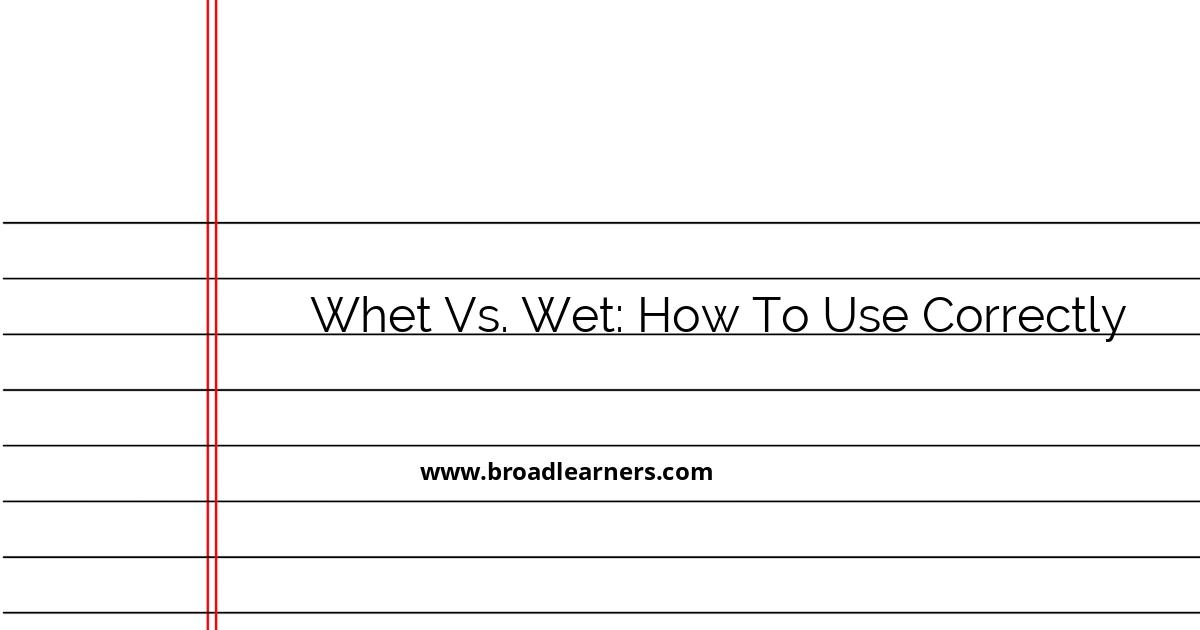The words whet and wet are homophones, which means they sound alike but have different meanings and spellings. Understanding the distinction between these two words is important for accurate communication in both written and spoken language. In this article, we will explore the differences between 'whet' and 'wet' and provide examples of how to use each correctly.
Understanding the Meaning of 'Whet'
Whet is a verb that means to sharpen or stimulate. It is most commonly used in the context of sharpening a blade or arousing interest, appetite, or desire.
Examples of 'Whet' in Sentences:
This book is sure to whet your intellectual appetite.
In this example, 'whet' is used to mean arouse or stimulate intellectual interest.
The chef used a stone to whet his knife before preparing the meal.
Here, 'whet' refers to the act of sharpening the knife.
Understanding the Meaning of 'Wet'
Wet is an adjective that describes something that is covered or saturated with water or another liquid. It can also be used as a verb to describe the act of making something wet.
Examples of 'Wet' in Sentences:
The towels are wet from being left out in the rain.
In this case, 'wet' describes the towels being saturated with rainwater.
Be careful not to wet the papers on the desk.
Here, 'wet' is used as a verb meaning to make the papers damp or cover them with liquid.
How to Remember the Difference
- Mnemonic Tip:
-
To help remember the difference, think of 'whet' as related to 'sharpening' or 'stimulating,' much like sharpening a whetstone for a blade. On the other hand, 'wet' is easy to remember as it naturally recalls the sensation of liquid or moisture.
Conclusion
By understanding the distinct meanings and usage of 'whet' and 'wet,' you can avoid common language errors and convey your message with precision. Remember, 'whet' is used to sharpen or stimulate, while 'wet' refers to being covered with liquid. Using these words correctly will enhance your communication skills and ensure clarity in your writing.

Did I miss anything? Respond below